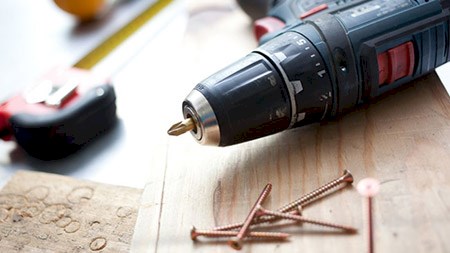The dry and sunny winter months in most parts of South Africa present the perfect opportunity for the homeowners’ associations of estates and cluster home complexes to tackle any construction or renovation projects they have planned for the year.
“There is no requirement for freehold community housing schemes that are governed by a Home Owners’ Association to draw up a 10-year maintenance plan as there is for Sectional Title schemes, but it is nevertheless a good idea,” says Gerhard Kotzé, MD of the RealNet estate agency group.
“And when doing so, the HOA should ideally plan for all outdoor painting, fencing, pool renovation and roofing projects, for example, to be done in winter – except in the Western Cape, where summer is the dry season.”
Apart from the weather advantage, he notes, winter is generally a “slow” time for building and maintenance contractors, so it is easier to schedule the work that needs doing – and the HOA may even be able to negotiate a discount.
“However, planning for major projects may need to begin several weeks or even months before the actual start date, which is why a 10-year plan is useful. The association will need time to develop specifications, interview contractors, get quotes and – unless it already has sufficient reserves - raise the money required to pay for each project.”
Then when selecting a contractor, says Kotzé, the HOA directors should always get references – and use them. “It is important to use only contractors that are not only properly qualified and insured but also have a good track record – and to make sure that any references they provide are for projects that are comparable in size and complexity to yours. It is not uncommon for small contractors to get in over their heads when trying to generate work.”
When investigating the cost of the work, the HOA directors will also need to give selected contractors a clear and detailed work brief to quote on. “It is a good idea to have this brief professionally written - by an architect or engineer, for example -because contractor’s quotes may otherwise not contain the details and protections the HOA needs to ensure a top-quality job with the fewest hassles.”
In addition, he says, the HOA directors should ensure that the following are contained in any contract they sign: The contractor’s contact information and physical address, a project schedule and a schedule of payments. Any building plans, permits and warranties that are necessary should also be attached.
“And once work begins, the HOA should never give in to requests for advance payments. This is often the sign of a contractor working on a shoestring and trying to use current payments to settle overdue supply bills or wages. You could be left high and dry with uncompleted work. Instead, make ‘progress payments’ for work already completed – after it has been inspected to verify quality as well as completion.
“In fact, if the project is really big, the HOA should seriously consider hiring a qualified building site manager or supervisor to oversee the work and ensure that it is done properly. In most cases, this extra expenditure will pay for itself in reduced aggravation, the timely completion of work and superior workmanship.”




